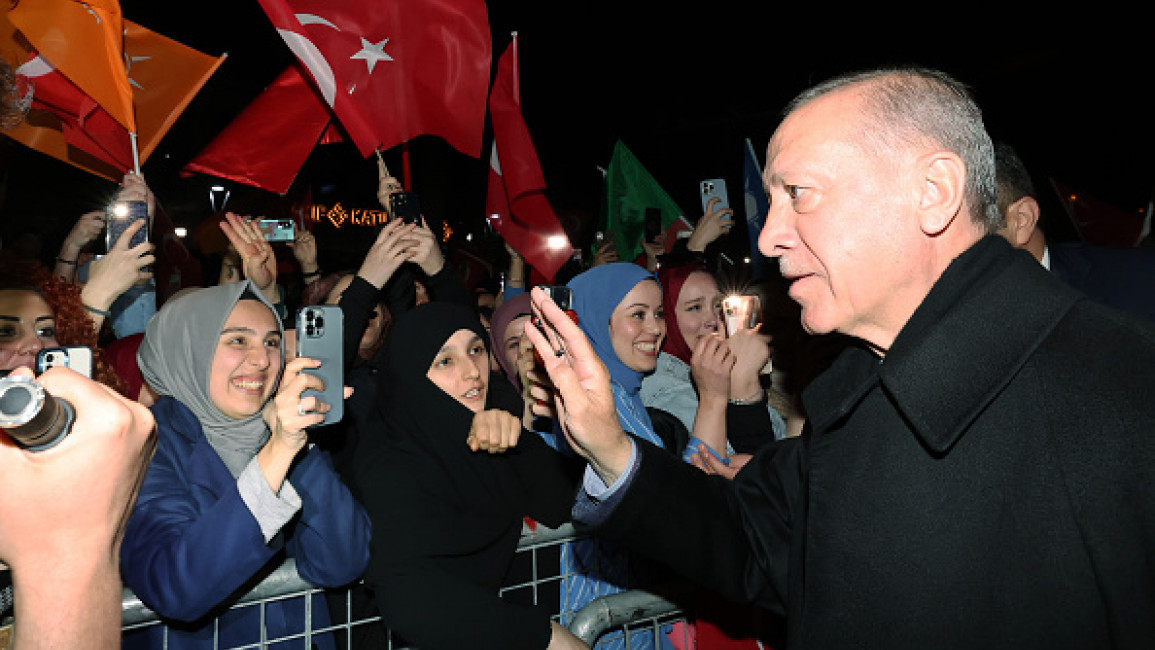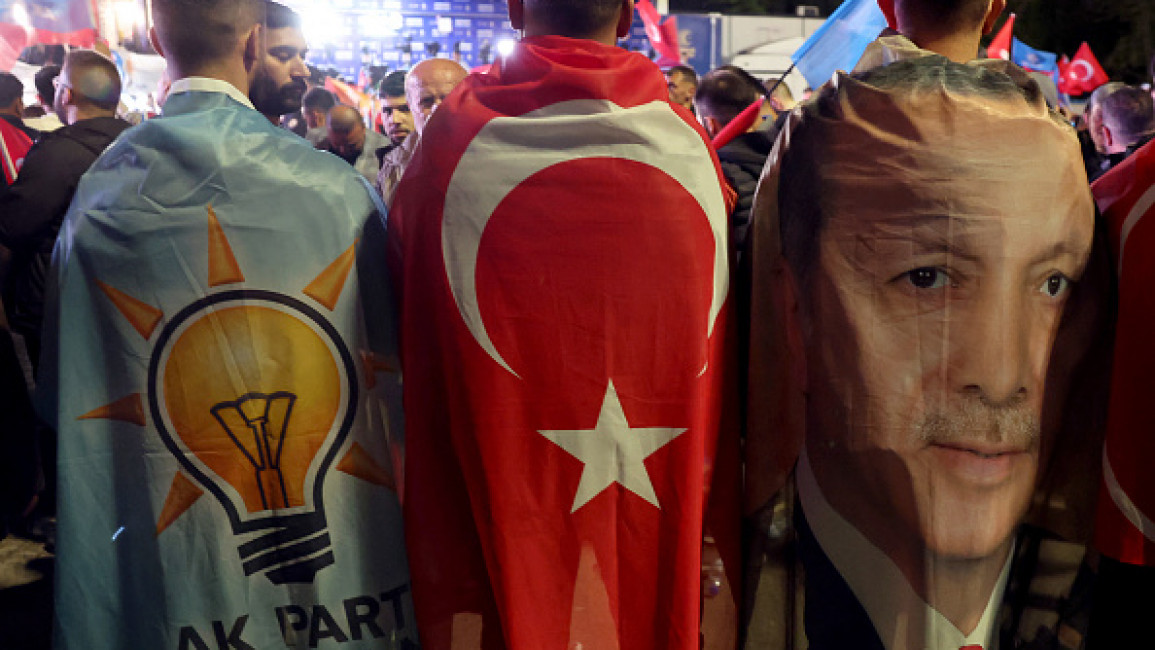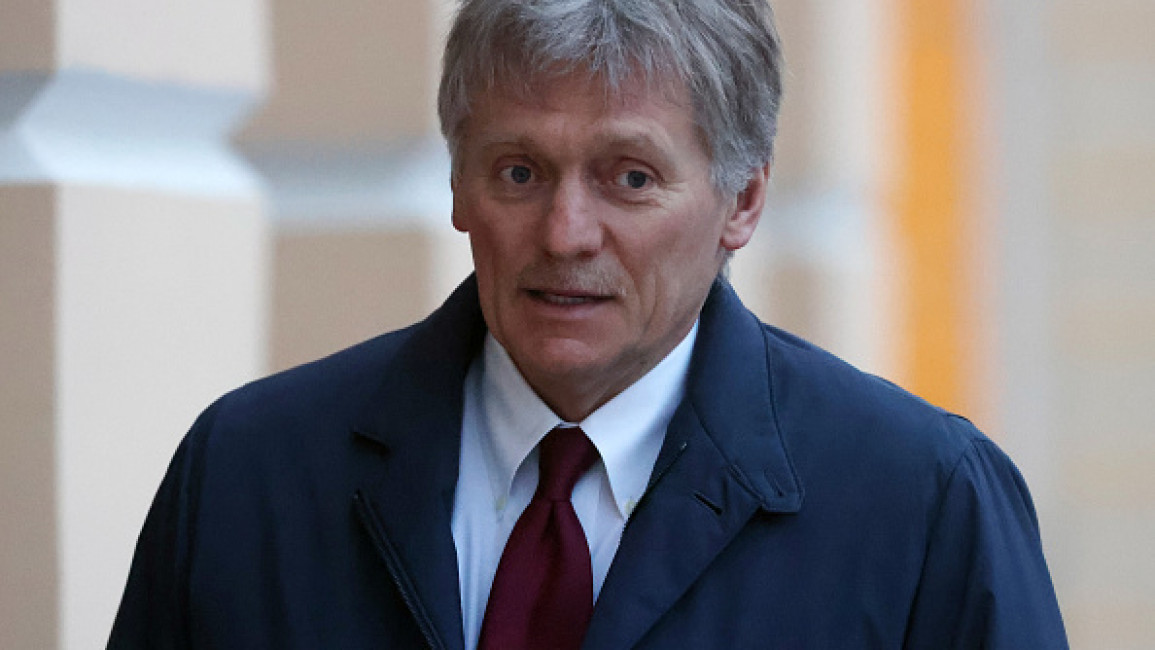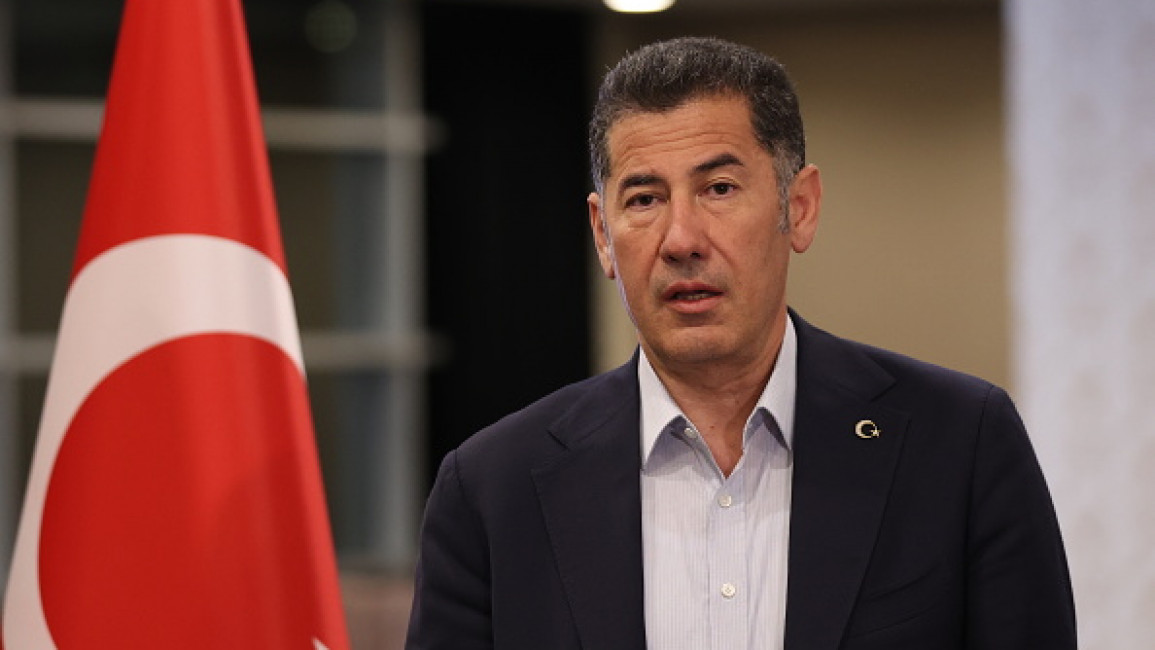That's all for today's coverage of the runoff after the Turkish presidential elections. Join us tomorrow for further updates.
Turkey braces for momentous runoff after election drama
Turkey's landmark election headed to a likely runoff on Sunday following a stormy night in which President Recep Tayyip Erdogan's secular rivals have contested the ballot count.
Erdogan sounded triumphant as he emerged before a sea of supporters shortly after midnight to proclaim himself ready to lead the nation for another five years.
Almost complete results from Turkey's most important election of its post-Ottoman era showed Erdogan -- in power since 2003 and undefeated in more than a dozen national votes -- falling just short of the 50-percent threshold needed to win.
"I wholeheartedly believe that we will continue to serve our people in the coming five years," the 69-year-old leader said to huge cheers.
The Anadolu state news agency showed the 69-year-old conservative leader on 49.3 percent.
Opposition leader Kemal Kilicdaroglu was trailing with 45.0 percent -- a disappointing outcome after late pre-election polls had shown him in the lead.
Turkey's first presidential runoff in the mostly Muslim but officially secular state's 100-year history is planned for May 28.
Kilicdaroglu's camp had initially contested the vote count and claimed to be ahead.
But the 74-year-old looked slightly despondent as he faced reporters early Monday and admitted that a runoff seemed inevitable.
"If our nation says second round, we will absolutely win in the second round," he said.
"The will for change in the society is higher than 50 percent."
But the secular opposition camp spearheaded by Kilicdaroglu cried foul.
"We are leading," the 74-year-old tweeted.
Leading opposition figures said the government was purposely slowing down the count in districts where Kilicdaroglu was enjoying strong support.
"They are contesting the count emerging from ballot boxes where we are massively ahead," Istanbul's opposition mayor Ekrem Imamoglu told reporters.
Imamoglu said the opposition's internal vote count showed Kilicdaroglu picking up 49 percent of the vote and Erdogan just 45.
But neither the state media count nor the one presented by the opposition avoids the possibility of Turkey holding another presidential vote in two weeks.
OSCE observers have raised concerns about Turkey's recent elections, highlighting a lack of transparency in the actions of the country's High Election Board (YSK) and biased state media coverage of the contest.
The observers, representing the Organization for Security and Cooperation in Europe (OSCE), stated that President Recep Tayyip Erdogan and his ruling parties enjoyed an unjustified advantage over opposition parties, which faced unequal conditions for campaigning.
At a press conference held on Monday, a joint observation mission comprising the OSCE Office for Democratic Institutions and Human Rights (ODIHR), the OSCE Parliamentary Assembly (OSCE PA), and the Parliamentary Assembly of the Council of Europe (PACE) released their findings.
"I regret to note that the election administration's work was lacking in transparency, as well as the overwhelming bias of the public media and the limitations to freedom of speech," Ambassador Jan Petersen, head of the ODIHR election observation mission, told the Ankara press conference.
Erdogan's final test?
Erdogan has already overcome jail, mass protests and a bloody 2016 coup attempt to emerge as Turkey's most important leader in generations, but this year's election may prove to be the final test for the 69-year-old.
The opposition coalition came close to ousting him from power on Sunday, but Erdogan still came away with 49.5% of the vote compared with Kilicdaroglu's 45%, although not quite enough to obtain the necessary 50% to win. The country awaits the runoff on May 28.
Erdogan is heralded by his supporters as a champion of religious freedoms in a predominantly Muslim nation that upholds secularism, has garnered immense admiration. Under his leadership, Turkey has witnessed remarkable infrastructural advancements.
Critics, however, allege a disconcerting slide toward authoritarianism and erosion of democratic principles. Erdogan's unorthodox economic strategies, such as slashing interest rates to combat soaring inflation have inflicted financial hardships on numerous ordinary Turkish citizens.
Despite the widespread criticism, Erdogan's popularity on Sunday held up in parts of southeastern Turkey - a testament to his support built up over two decades.
Kemal Kilicdaroglu, the head of Turkey's biggest opposition party, may struggle to close the gap in the May 28 runoff, despite hopes of leading Turkey into a new 'democratic' era and away from Erdogan's increasingly authoritarian rule.
With the Turkish economy in trouble and six political parties campaigning for him, Kemal Kilicdaroglu still finished with 45% of the vote, compared with Erdogan's 49.5%.
The leader of the opposition has shown no sign of backing down following Sunday's first round results, accusing Erdogan's AK Party of interfering with the counting and reporting of results. The AK Party has denied this.
"Despite all his slanders and insults, Erdogan did not get the result he expected," Kilicdaroglu told supporters as the results came in.
"If our nation says there's to be a 'second round', so be it. We will definitely win this election in the second round. Everyone will see it."
Who is Sinan Ogan, the nationalist politician set to be Turkey's kingmaker?
Earning 5.2% of the vote in the first round of Turkey's presidential elections, the 55-year old former academic could ultimately tip the scales in the May 28 runoff by deciding who to back.
The figure has a notorious reputation due to his far right political views and his anti-refugee comments.
The Kremlin said on Monday that it expected Russia's cooperation with Turkey to continue and deepen whoever wins the country's presidential election, which is set to go to a second round on May 28.
"We have great respect for the choice of the Turkish people, and will respect it, but in any case we expect our cooperation to continue, deepen and broaden," Kremlin spokesman Dmitry Peskov told reporters.
Peskov also said Russia regarded Turkey as "a mature democracy".
The nationalist presidential candidate Ogan has emerged as a potential kingmaker for the May 28 runoff vote.
Sinan Ogan, who finished third in Sunday's election with 5.2%, said he could only support main opposition candidate Kemal Kilicdaroglu in the runoff if he agrees to offer no concessions to a pro-Kurdish party.
Ogan, a former academic, took part in Sunday's election as the candidate of ATA, an alliance of Turkish ultra-nationalist parties led by the Victory Party, which is known for its anti-immigrant stance.
"We will consult with our voter base for our decision in the runoff. But we already made clear that the fight against terrorism and sending refugees back are our red lines," Ogan told Reuters in an interview on Monday.
The 55-year-old said his goal was to remove two mainly Kurdish parties from Turkey's "political equation" and bolster Turkish nationalists and secularists.
"And the election results showed that we succeeded in this," he said.
Turkey's lira crashed to a two-month low after it became clear there would be a second round of presidential elections.
President Erdogan did not manage to secure the 50 percent needed to secure a win on Sunday, meaning Turks will vote again in his run-off against opposition leader Kemal Kilicdaroglu.
After news of the expected second round of voting came out, the Turkish lira - already in decline over the past year - slipped further to the weakest point since the March 2023 earthquakes.
Turkey's main banking index also slumped by more than 9 percent.






